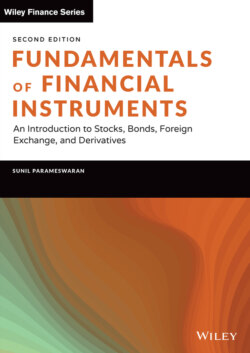Читать книгу Fundamentals of Financial Instruments - Sunil K. Parameswaran - Страница 30
На сайте Литреса книга снята с продажи.
PREFERRED SHARES
ОглавлениеPreferred stocks are a hybrid of debt and equity. They are similar to debt in the sense that holders of such securities are usually promised a fixed rate of return. However, such dividends are payable from the post-tax profits of the firm, as in the case of equity shares. On the other hand, interest payments to bondholders are made from pre-tax profits, and therefore constitute a deductible expense for tax purposes.
If a company were to refrain from paying the preferred dividends in a particular year, then the shareholders, unlike the bondholders, cannot take legal recourse as a matter of right. In practice, most preferred shares are cumulative in nature. This implies that any unpaid dividends in a financial year must be carried forward, and the accumulated dividends must first be paid before the company can contemplate the payment of dividends to equity shareholders.
Preferred shareholders have restricted voting rights. That is, they usually do not enjoy the right to vote unless the payment of dividends due to them is in arrears. In the event of liquidation of the firm, the preferred shareholders will have to be paid off before the claims of the equity holders can be entertained. Thus, the order of priority of the stakeholders of the firm from the standpoint of payments is bondholders first, followed by preferred shareholders, and then equity shareholders. Within the category of bondholders, secured debt holders get priority over unsecured debt holders. The term preferred arises because such shareholders are given preference over equity shareholders, and not because the shareholders prefer such instruments.
